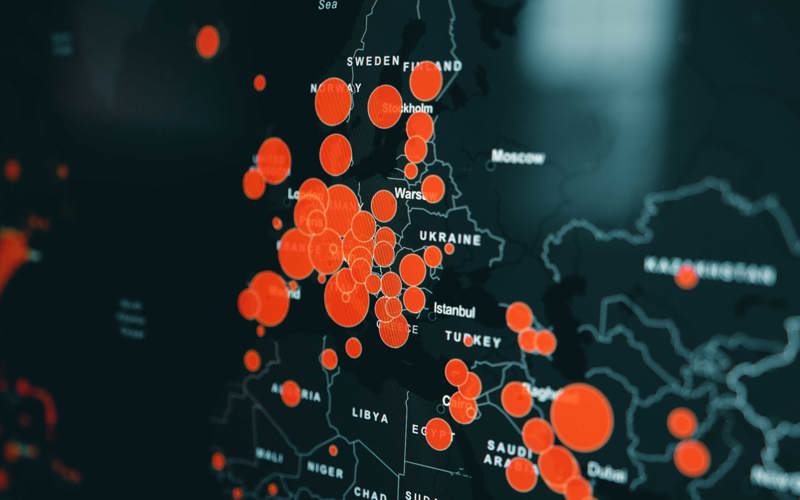
Doing data better for policy and the public good
RDS and ADR Scotland partnered with Sense about Science during Evidence Week in Holyrood on March 22 to discuss the use of data and research for the public good.
Research Data Scotland
23 Mar 2022

Roger Halliday
21 Jan 2022
Roger Halliday, Chief Executive Officer at RDS and Scotland’s Chief Statistician, reflects on RDS’s progress to date and what to expect from the service in the future.
In October last year Research Data Scotland became a registered charity as it segued from being an arm of the Scottish Government to become and independent, not-for-profit organisation in its own right.
Now, as RDS embarks on its journey to deliver its mission to promote and advance health and social wellbeing in Scotland by enabling access to and linkage of data about people, places and businesses for research in the public good, is a good time to consider what we will deliver over the next 12 months.
This is underpinned by our key principles: that RDS will only enable access to data for research that is for the public good; that RDS will ensure that all data about people, businesses or places is always kept in a controlled and secured environment and that RDS will be transparent about what data it provides access to and how it is being used for public benefit.
All this is underscored by our commitment to working collaboratively with our partners in the Scottish Government, Scotland’s leading academic institutions and public bodies which aim to facilitate insight from data and promote and advance health and social wellbeing in Scotland.
“One of the important positive legacies of COVID-19 is the recognition that high quality statistics and analysis don’t just happen. As well as talented people, it requires a good and nurtured infrastructure.”
Data and technology have a fundamental role to play in helping understand, communicate and address challenges but investment and engagement is required to harness its potential and to do so in an inclusive way.
At RDS we will seek to enhance the ability to access and engage with evidence and data and will work with our partners to support an informed national conversation on the use of personal data and data sharing for public good to inform responses to future pandemics and other societal challenges.
RDS has a fundamental role to play in helping understand, communicate and address the challenges encountered in all facets of society from health and wellbeing to the wider economy. However, the pandemic has demonstrated the need for better disaggregation and linking of data to understand how impacts play out across Scotland.
One of the important positive legacies of COVID-19 is the recognition that high quality statistics and analysis don’t just happen. As well as talented people, it requires a good and nurtured infrastructure. So, the Scottish Government’s investment in RDS can help researchers access and connect data they need to provide strong evidence foundations for decisions. I’m particularly supportive of the project to improve the coverage of data on protected characteristics using a range of administrative and census datasets.
This has been supported by the Data and Intelligence Network, which also grew out of COVID-19 and aims to connect people from Government, public bodies and academia around shared data challenges.
“We will shortly be publishing new datasets as they become available which will open further research propositions for our users.”
So, what can you expect from RDS over the next couple of months?
Our focus continues to be to simplify and speed up the process for accessing data whilst maintaining the ethical and secure use of that data. As such, we have worked with users to define that simpler process and are working to make it a reality.
This means a revamped website, the development of which will be informed by our users, which will incorporate a next generation RDS data catalogue, an simpler online data application form where researchers can track progress, and a secure forum in which users can share their experiences and advice.
We will be developing approaches to creating synthetic data that will be available to registered users to work immediately to shape their analysis and code.
And we will roll out new approaches to proportionate information governance that should simplify this part of securing access to data.
Elsewhere, we will shortly be publishing new datasets as they become available which will open further research propositions for our users.
We can’t do any of this without continuing to place RDS users at the centre of all our thinking Our regular User Forum on Tuesday, February 15 provides users with an ideal opportunity to voice views and influence the journey we are all on. If you have not registered already you can register here.
If you have any questions about RDS’s service, please contact us via info@researchdata.scot.
Related content

RDS and ADR Scotland partnered with Sense about Science during Evidence Week in Holyrood on March 22 to discuss the use of data and research for the public good.
Research Data Scotland
23 Mar 2022

The National Archive have finished their work and the publication of the 1921 census for England and Wales marks a once-in-a-decade event. RDS considers what the census means for us now and how it informs policy.
07 Feb 2022
To stay updated with Research Data Scotland, subscribe to our mailing list or follow us on Twitter and LinkedIn.
